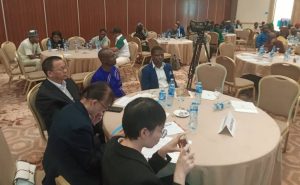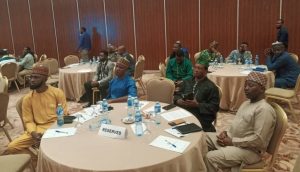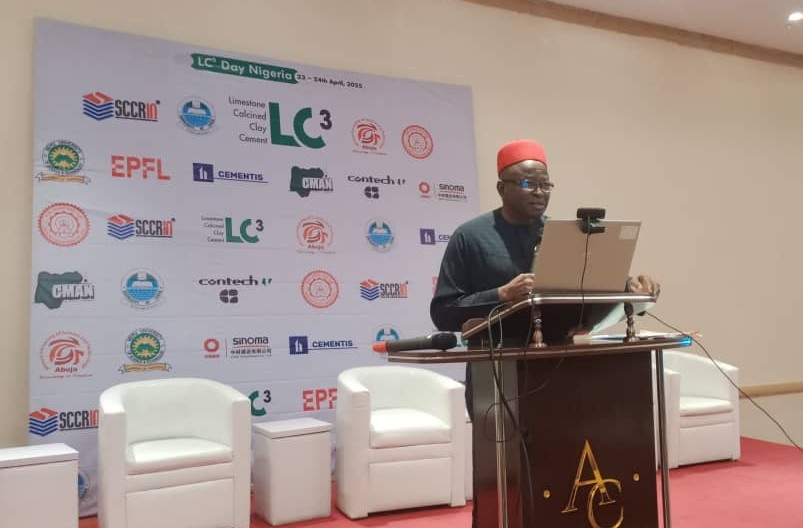Leading voices in Nigeria’s construction and environmental sectors have urged a shift toward eco-friendly cement alternatives as a strategic pathway to sustainable development and affordable housing for low- and middle-income earners.
The call was made at a conference on Limestone Calcined Clay Cement (LC3) held in Abuja, organized by Cement and Concrete Researchers in Nigeria. The event brought together engineers, environmentalists, academics, and policymakers to examine the role of low-carbon materials in transforming Nigeria’s built environment.
Dr. Olumoh Sharafadeen, a Fellow of the Nigerian Society of Engineers, stressed the urgent need to adopt cost-effective, sustainable building solutions, especially in the face of Nigeria’s growing housing deficit.
“We’ve been clamouring for alternative materials that are not only affordable but also environmentally sustainable,” Dr. Sharafadeen said. “Countries like Switzerland and Ghana are already leveraging LC3, and Nigeria must not be left behind in this global movement.”
LC3, which combines limestone and calcined clay, significantly reduces carbon emissions compared to conventional cement, making it a viable solution for nations seeking to mitigate climate change impacts while promoting inclusive housing.
Sharafadeen added that adopting LC3 could allow Nigeria to tap into international carbon credit systems, offering both environmental and economic benefits.

Dr. Efegbidiki Okobia, National President of the Nigeria Environmental Society, echoed the sentiment, stating that reducing emissions from cement production is vital not only for climate resilience but also for safeguarding public health and the environment.
“The environmental and health costs of traditional cement manufacturing are immense. Shifting to green alternatives like LC3 is not just wise—it’s necessary,” he said.
Prof. Azikiwe Onwualu, President of the African University of Science and Technology, Abuja, emphasized that economic progress must not come at the expense of the planet.


“We must build responsibly. Adopting eco-friendly cement helps protect biodiversity and ensures a more livable Nigeria for future generations,” he said.
Representing the Swiss Embassy, Babatunde Ajala, reiterated Switzerland’s commitment to supporting Nigeria’s environmental goals, emphasizing that sustainable development is a shared global responsibility.
“Switzerland recognizes the importance of sustainable construction and remains a willing partner in supporting green innovations in Nigeria,” Ajala said on behalf of Ambassador Dr. Andreas Baum.
The LC3 conference marked a significant step toward accelerating policy and market support for environmentally conscious construction in Nigeria. Stakeholders concluded with a unified call for collaboration among government agencies, academia, and industry players to facilitate the mainstream adoption of green cement technologies.



